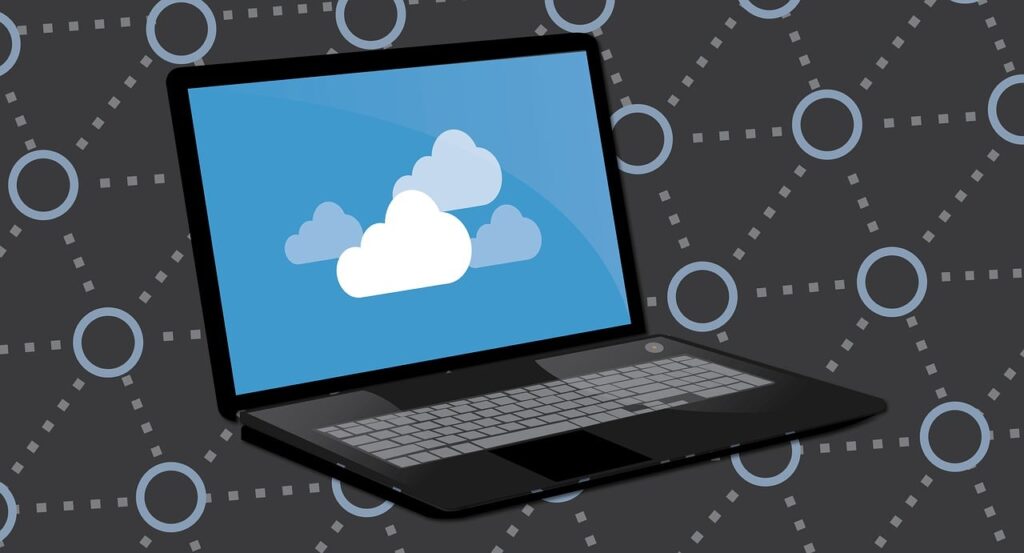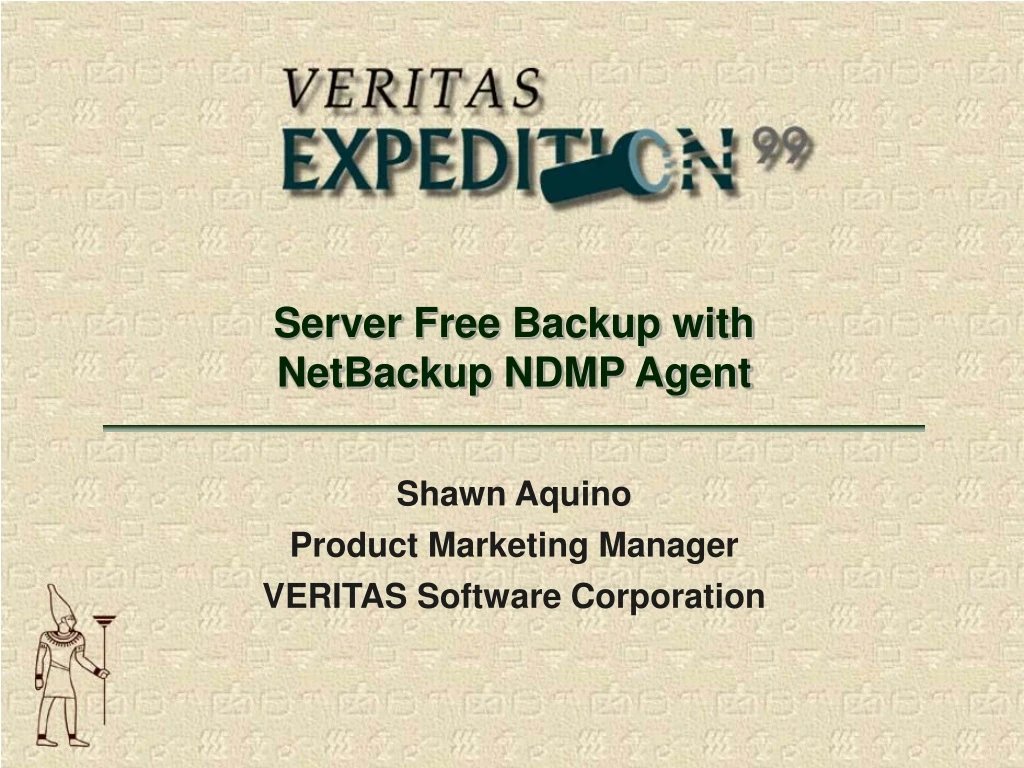Backup servers are crucial for data protection. They ensure your data is safe and recoverable.
In today’s digital age, data is the backbone of businesses. Losing it can be disastrous. This is where backup servers come into play. They provide a safety net, storing copies of your data in secure locations. But what exactly is a backup server, and why is it so important? Many people find the concept confusing and complex. In this blog post, we will demystify backup servers. We will explain their importance, how they work, and why your business needs one. With Liquid Web, you can explore managed hosting solutions that ensure your data is always protected and secure. Let’s dive in and make backup servers simple to understand.

Credit: www.liquidweb.com
Introduction To Backup Servers
In today’s digital age, data is everything. Ensuring its safety is crucial. Backup servers are essential for protecting valuable information. They provide a safeguard against data loss, ensuring business continuity and uninterrupted operations.
What Is A Backup Server?
A backup server is a dedicated server that stores copies of data for recovery purposes. It replicates crucial information from primary servers. This replication process ensures data availability in case of failures or disasters. Backup servers use various methods to store data, including:
Full backups: Complete copies of all data, including all files, folders, and settings.
Incremental backups: Only changes since the last backup.
Differential backups: Changes since the previous full backup.
Each method has its advantages, depending on the needs of the business. Liquid Web offers managed hosting solutions, including dedicated and virtual private server (VPS) hosting. These solutions are optimized for speed, efficiency, and security.
The Importance Of Data Protection
Data protection is critical for any business. A single data breach can result in substantial losses. Backup servers ensure that data is always recoverable. Here are some key reasons why data protection is essential:
Business continuity Ensures That operations run smoothly during failures.
Compliance: Meets regulatory requirements for data storage and management.
Security: Protects against cyber threats and data breaches.
Using services like Liquid Web can enhance data protection. Their solutions include DDoS protection, firewalls, and real-time monitoring. These features ensure a secure environment for your data.
Why Choose Liquid Web For Backup Solutions?
Feature | Benefit |
|---|---|
High Performance | Optimized with SSD storage and advanced caching. |
Enhanced Security | Includes DDoS protection, firewalls, and real-time monitoring. |
Scalability | Easily scalable solutions to accommodate growing needs. |
24/7/365 Support | Access to expert support through phone, chat, and email. |
Choosing Liquid Web ensures reliable and fast hosting services. Their flexible options grow with your business. They also offer a 30-day money-back guarantee for new customers.

Credit: alexonet.com
Key Features Of Backup Servers
Backup servers are essential for any business that values its data. They offer numerous features to ensure data safety and quick recovery. Here are some of the key features to look out for:
Automated Backup Processes
Automated backup processes save time and reduce human error. They ensure regular backups without manual intervention. Many backup servers, such as Liquid Web, offer scheduling options tailored to your business needs. This means you can set it and forget it, ensuring your data is always backed up.
Data Encryption And Security
Data security is crucial. Backup servers use advanced encryption methods to protect your data. Encryption ensures that even if someone gains access to your backup, they cannot read the data. Liquid Web provides enhanced security features, including DDoS protection and firewalls, to keep your data safe.
Scalability And Flexibility
As your business grows, your backup needs will change. Backup servers should be scalable and flexible. This allows you to adjust your storage capacity as needed. Liquid Web offers easily scalable solutions to accommodate growing business needs, ensuring you won’t outgrow your backup solution.
Disaster Recovery Options
Disasters can strike anytime. Backup servers should offer robust disaster recovery options. These include features like quick data restoration and remote backups. Liquid Web provides disaster recovery and backups to help you get back up and running quickly after an incident.
User-friendly Interfaces
Not everyone is a tech expert. Backup servers should have user-friendly interfaces. This makes it easy for anyone to manage backups and recover data. Liquid Web ensures that its solutions are easy to use, even for those with limited technical knowledge.
Backup servers, like those provided by Liquid Web, are designed to offer high Performance, reliability, and security. They ensure your business’s data is always safe and accessible.
How Backup Servers Benefit Different Users
Backup servers offer crucial protection for data by ensuring it is saved securely. They help individuals, businesses, and organizations recover information after unexpected data loss. This makes them essential for maintaining smooth operations and preventing potential disruptions.
Backup servers are essential for ensuring data safety and recovery. They cater to the needs of various users, including small businesses, large enterprises, and individual users. Each type of user can leverage backup servers to enhance data security and operational continuity.
Small Businesses
Small businesses often operate with limited resources and tight budgets. Backup servers, such as those provided by Liquid Web Hosting Services, offer scalable and cost-effective solutions. Here’s how they benefit small businesses:
Cost-Effective Solutions: Liquid Web offers managed hosting solutions starting at $19 per month, making it an affordable option for small businesses.
Scalability: Easily scalable options allow businesses to grow without significant upfront investments.
Enhanced Security: Features such as DDoS protection, firewalls, and real-time monitoring ensure that data is secure.
24/7 Support: Access to professional support ensures any issues are resolved promptly.
Large Enterprises
Large enterprises require robust and reliable backup solutions to manage vast amounts of data. Liquid Web provides enterprise-grade infrastructure to meet these needs:
High Performance: Optimized for speed and efficiency with SSD storage and advanced caching.
Global Data Centers: Ensures data availability and redundancy across different locations.
Customizable Solutions: Tailored hosting solutions to meet specific enterprise needs.
Disaster Recovery: Proactive monitoring and disaster recovery plans to minimize downtime.
Individual Users
Individual users also benefit from reliable backup servers to protect their data. Liquid Web offers solutions that are easy to use and maintain:
Managed WordPress Hosting: Simple and efficient hosting for personal blogs and websites, starting at $19/month.
Enhanced Security: Protects personal data with robust security features.
24/7 Support: Access to expert support ensures any issues are resolved quickly.
Scalability: Options to upgrade as personal needs grow.
In summary, backup servers like those provided by Liquid Web offer essential benefits to various users, ensuring data security, scalability, and reliable support.
Pricing And Affordability Of Backup Servers
Choosing the correct backup server involves understanding the costs and benefits. Pricing and affordability play a crucial role in decision-making. In this section, we will break down the costs of popular backup servers, compare subscription plans, and analyze cost versus value.
Cost Breakdown Of Popular Backup Servers
Here’s a look at the pricing details for Liquid Web’s managed hosting solutions:
Service Type | Starting Price (Monthly) |
|---|---|
Dedicated Servers | $169 |
VPS Hosting | $59 |
Cloud Hosting | $265 |
Managed WordPress Hosting | $19 |
These prices reflect the starting points for each service. Additional features and customizations may incur extra costs. The prices aim to provide high Performance, reliability, and security.
Comparing Subscription Plans
Subscription plans vary based on the service type and specific needs. Let’s compare some options:
Dedicated Servers: Ideal for high-performance needs. Prices start at $169 per month.
VPS Hosting: Ideal for small to medium-sized businesses. Prices start at $59 per month.
Cloud Hosting: Offers scalability and flexibility. Prices start at $265 per month.
Managed WordPress Hosting: Designed for WordPress sites. Prices start at $19 per month.
Each plan includes 24/7/365 support, ensuring access to expert assistance at any time.
Cost Vs. Value: Making The Right Choice
When evaluating costs, consider the value each service provides. Liquid Web offers:
High Performance: SSD storage and advanced caching for speed.
Enhanced Security: DDoS protection, firewalls, and real-time monitoring.
Scalability: Solutions that grow with your business.
24/7 Support: Access to professional help at any time.
Weighing the cost against these benefits helps make an informed decision. A higher price may offer better Performance and security, which is essential for businesses with critical data needs.
For more detailed pricing and package information, visit the Liquid Web website.
Pros And Cons Of Using Backup Servers
Backup servers are essential for safeguarding your data. They ensure business continuity and protect against data loss. Yet, like any technology, they come with both benefits and limitations. Understanding these can help you make an informed decision about whether to incorporate backup servers into your infrastructure.
Advantages Of Backup Servers
Backup servers offer numerous benefits that make them a compelling option for businesses.
Data Protection: Backup servers protect against accidental deletions, hardware failures, and cyber-attacks.
Business Continuity: They ensure that your business operations can continue even in the event of data loss or disruption.
Scalability: Easily scalable solutions to accommodate growing business needs.
Enhanced Security: With features like DDoS protection, firewalls, and real-time monitoring, your data remains secure.
Professional Support: Access to expert support 24/7/365 through phone, chat, and email.
Potential Drawbacks And Limitations
Despite their advantages, backup servers also have some potential drawbacks and limitations.
Cost: Backup servers can be expensive, with dedicated servers starting at $169 per month.
Maintenance: Regular maintenance is required to ensure backup servers are functioning correctly.
Complexity: Setting up and managing backup servers can be complex and may require professional expertise.
Resource Intensive: Backup processes can consume significant network and storage resources.
Potential Downtime: During maintenance or data recovery, downtime may occur.
Choosing a reliable provider like Liquid Web can mitigate some of these drawbacks. They offer managed hosting solutions with high Performance, reliability, and security. Their 30-day money-back guarantee also provides peace of mind for new customers.
Features | Details |
|---|---|
Managed Hosting Solutions | Includes Dedicated Servers, VPS Hosting, Cloud Hosting, and Managed WordPress Hosting. |
High Performance | Optimized for speed and efficiency with SSD storage and advanced caching. |
Enhanced Security | Includes DDoS protection, firewalls, and real-time monitoring. |
Scalability | Easily scalable solutions to accommodate growing business needs. |
24/7/365 Support | Access to expert support through phone, chat, and email. |

Credit: www.slideserve.com
Recommendations For Choosing The Right Backup Server
Choosing the correct backup server is crucial for ensuring data protection and business continuity. It’s essential to assess your needs, evaluate options, and make an informed decision. Below are some recommendations to help you select the best backup server for your specific needs.
Assessing Your Data Protection Needs
Before selecting a backup server, it’s essential to understand your data protection needs. This involves:
Data Volume: Estimate the total amount of data you need to back up.
Backup Frequency: Determine how often you need to perform backups (daily, weekly, etc.).
Recovery Time Objective (RTO): Assess the maximum acceptable downtime during recovery.
Recovery Point Objective (RPO): Establish the maximum acceptable data loss measured in time.
Compliance Requirements: Be aware of any industry-specific regulations that you must adhere to.
Understanding these factors will help you choose a backup solution that meets your specific needs.
Evaluating Different Backup Server Options
There are various backup server options available, each with its own set of features and benefits. Some of the popular options include:
Backup Server Type | Features |
|---|---|
Dedicated Backup Servers | High performance, large storage capacity, enhanced security. |
VPS Backup Servers | Cost-effective, scalable, and suitable for small to medium-sized businesses. |
Cloud Backup Solutions | Scalable, accessible from anywhere, and automated backups. |
Managed WordPress Backup Hosting | Optimized for WordPress sites, easy to use, reliable support. |
It’s important to compare these options based on factors such as cost, scalability, and support.
Tips For Making An Informed Decision
To make an informed decision, consider the following tips:
Research and Reviews: Read customer reviews and case studies to gain insight into the experiences of other users.
Trial Periods: Take advantage of trial periods or money-back guarantees to test the service and determine if it’s right for you.
Support Availability: Ensure that 24/7 support is available to promptly address any issues.
Scalability: Choose a solution that can grow with your business needs.
Security Features: Look for features like DDoS protection, firewalls, and real-time monitoring.
By following these tips, you can select a backup server that provides reliable and secure data protection for your business.
Frequently Asked Questions
What Are The Different Backup Methods For Servers?
Different server backup methods include full backups, incremental backups, differential backups, and mirror backups. Full backups copy all data. Incremental backups save changes since the last backup. Differential backups save changes since the previous full backup. Mirror backups create exact copies in real time.
What Is The 3-2-1 Backup Strategy?
The 3-2-1 backup strategy involves three copies of your data. Keep two backups on different media and one offsite.
What Are The Three Types Of Backups?
The three types of backups are complete, incremental, and differential. Complete backup copies of all data. Incremental backup saves changes since the last backup. Differential backup saves changes since the previous full backup.
Can I Use NAS as a Backup Server?
Yes, you can use a NAS as a backup server. It offers reliable and efficient data storage solutions.
Conclusion
Understanding backup servers is crucial for data protection. They ensure your business runs smoothly. With reliable backup solutions, the risk of data loss decreases significantly. Consider using a trusted provider like Liquid Web for your backup needs. Their managed hosting solutions offer high Performance and security. Plus, they have 24/7 support for peace of mind. Explore more about Liquid Web and its features on their official website. Secure your data and business today.
